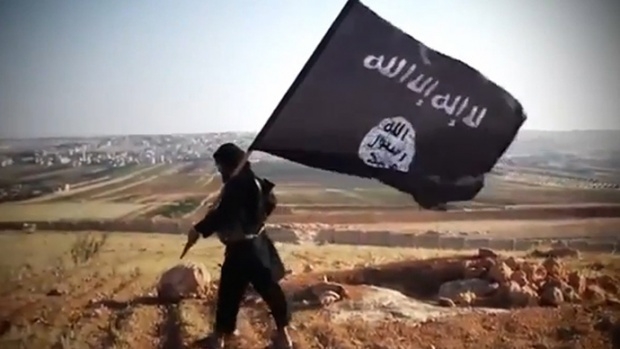IS allegedly used mustard gas in Iraq

Islamic State (IS) fighters have used mustard gas to attack Kurdish soldiers, a diplomat told Reuters on Monday.
The gas was used in two attacks in Iraq near the Kurdish capital of Erbil in August last year, sources close to Organisation for the Prohibition of Chemical Weapons (OPCW), the world's chemicals watchdog, said.
"The results of some sampling have confirmed the use of mustard gas," one source said, asking to remain anonymous.
Despite the diplomat’s allegations, OPCW did not disclose the user of the mustard gas attacks.
The announcement comes days after CIA chief John Brennan told CBS news that IS fighters had the capability to make small quantities of chlorine and mustard gas and had used it in war-torn Syria and Iraq.
US national intelligence director James Clapper last week told a congressional committee that the IS group have used toxic chemicals in Iraq and Syria, including sulphur mustard.
Clapper said it was the first time a militant group had produced and used a chemical warfare agent in an attack since Japan's Aum Supreme Truth cult carried out a deadly sarin attack during rush hour in the Tokyo subway in 1995.
Iraqi Kurd authorities last year said that IS fighters carried out two attacks on 11 August on the frontline towns of Gweyr and Makhmur, in which IS had allegedly launched around 50 mortar rounds.
The peshmerga ministry said "37 of the rounds released a white dust and black liquid when they exploded. Thirty-five peshmerga fighters were exposed and some were taken for treatment."
"The results of the tests on blood samples ... reveal traces of mustard gas," the ministry said at the time, but the origin of the suspected gas was unclear.
OPCW spokesman Malik Ellahi confirmed the watchdog had sent a team of experts to help Iraq in its investigation into possible chemical weapons.
"The team completed its mission and the OPCW has shared the results of its technical work with the government of Iraq," Ellahi said in a statement.
"The complete findings and conclusions can be expected to be issued by the government of Iraq together with the OPCW inputs," he said, declining to give further details.
Diplomatic sources told AFP the report was a survey conducted by Baghdad with the OPCW's help.
"The report is still a work in progress," the source told AFP, stressing it would be "logical" for the OPCW to publish it - but it may well also be released by Baghdad.
"It is not the OPCW's role" to point fingers as to which side used the weapon, the source stressed.
In January, the OPCW announced the complete destruction of neighbouring Syria's declared chemical weapons arsenal.
But the use of chemical weapons in the deadly nearly five-year conflict continues.
In November, the OPCW confirmed with "utmost confidence" that mustard gas was used in Syria in August during fighting between rebels and hardline militants and "likely" killed a child.
Mustard gas has been dubbed Yperite because it was first used near the Belgian city of Ypres in July 1917 by the German army.
An oily yellow almost liquid-like substance that smells like garlic or mustard, the gas causes the skin to break out in painful blisters, irritates eyes and causes eyelids to swell up, temporarily blinding its victims.
Classified as a Category 1 substance, which means it is seldom used outside of chemical warfare, mustard gas was banned by the UN in 1993.
It is believed, however, that the regime of former Iraqi dictator Saddam Hussein unleashed mustard gas against the Iraqi Kurds in the Halabja attack in 1988.
IS fighters launched a lightning offensive in Iraq in 2014, allowing it to take control of swathes of territory north of Baghdad and in the Kurdistan region.
Stay informed with MEE's newsletters
Sign up to get the latest alerts, insights and analysis, starting with Turkey Unpacked
Middle East Eye delivers independent and unrivalled coverage and analysis of the Middle East, North Africa and beyond. To learn more about republishing this content and the associated fees, please fill out this form. More about MEE can be found here.




